Anti-racism / Coronavirus / Policing
Discriminatory policing in the UK: How Coronavirus made existing inequalities even worse
Posted on 27 Jul 2020
Over-bearing and discriminatory policing during the coronavirus lockdown, in conjunction with Black Lives Matter protests, has put UK policing in the spotlight. It’s time for meaningful action on police discrimination, and for the Government to withdraw the dangerously broad powers handed to police under the pretext of public health.
The killing of George Floyd in Minneapolis, U.S., sparked a wave of mass mobilisations across the globe – challenging the structural racism that has created the conditions for state violence against Black people, insulated perpetrators from accountability, and entrenched inequality.
In the UK, the chant “the UK is not innocent” rang out, along with some of the names of the 183 people of colour who have died at the hands of the police in England and Wales in the last 30 years.
This prompted the Independent Office for Police Conduct to launch a review of racism in UK policing, and parliament’s Home Affairs Select Committee to re-open an inquiry marking the 20th anniversary of the Macpherson report.
Over-policed and under protected
The Macpherson report, published in 1999, exposed a police investigation marred by institutional racism and failures of law, policy and policing practice. It sparked significant legislative and policy change.
But as Liberty told the Committee, progress has stalled. Racial disparities in the use of police powers are widening, increasing numbers of frontline officers are being armed, and intrusive technology – which reinforces racism in policing – has been rolled out.
During the coronavirus pandemic, the consequences of heavy-handed and uneven policing have been magnified – eroding trust in the authorities, putting our public health at risk, and leaving communities of colour over-policed and under protected in the biggest public health crisis in a generation.
Discriminatory policing in the UK
In the UK, black people make up three per cent of the population, but are subject to 16 percent of police use of force and 20 percent of the use of Tasers. They account for eight percent of deaths in custody.
Black people are over nine times more likely than white people to be stopped and searched. Under Section 60 suspicion-less stop and search, this rises dramatically.
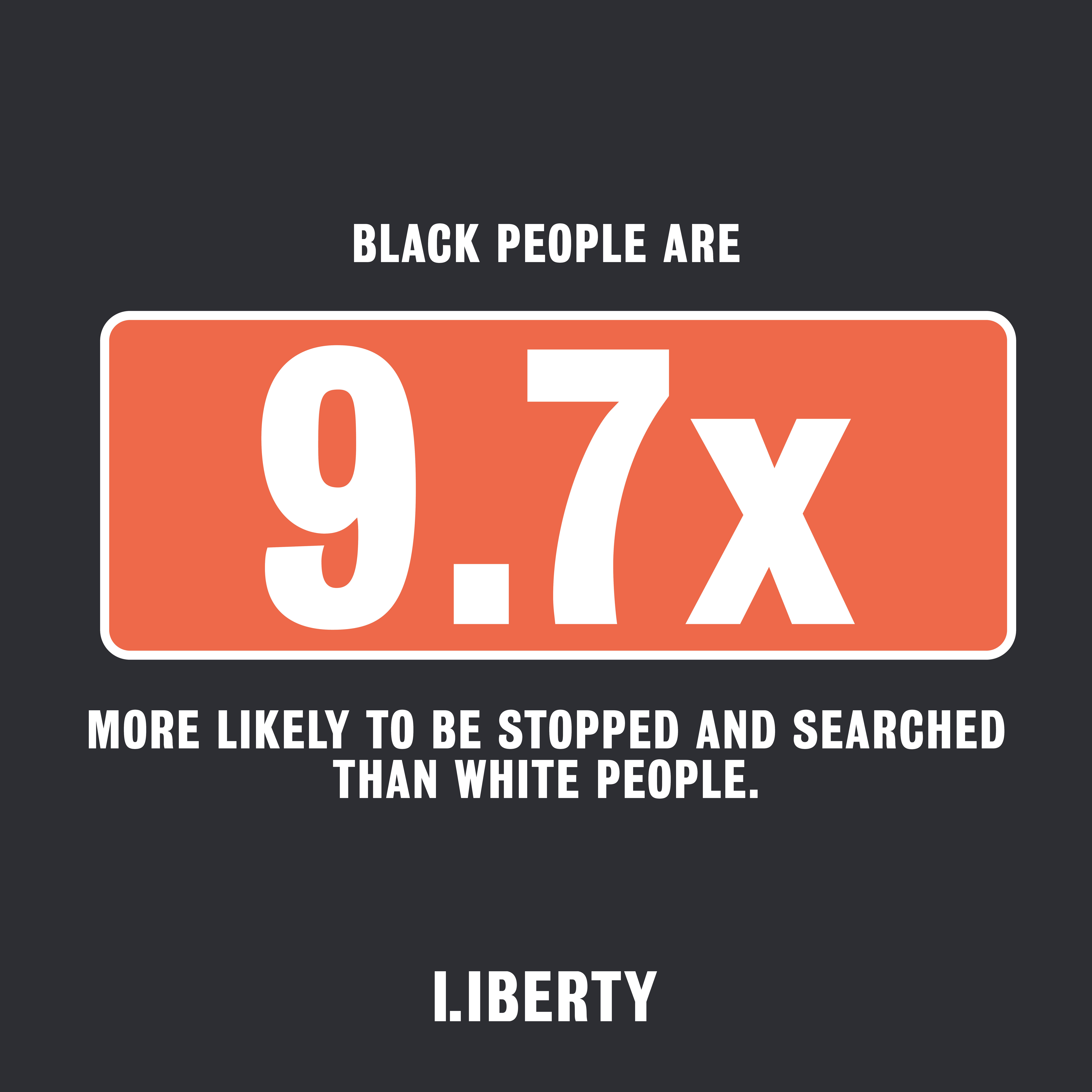

Boris Johnson defends stop and search, but the Government’s Serious Violence Strategy states that there is no evidence that it reduces serious violence.
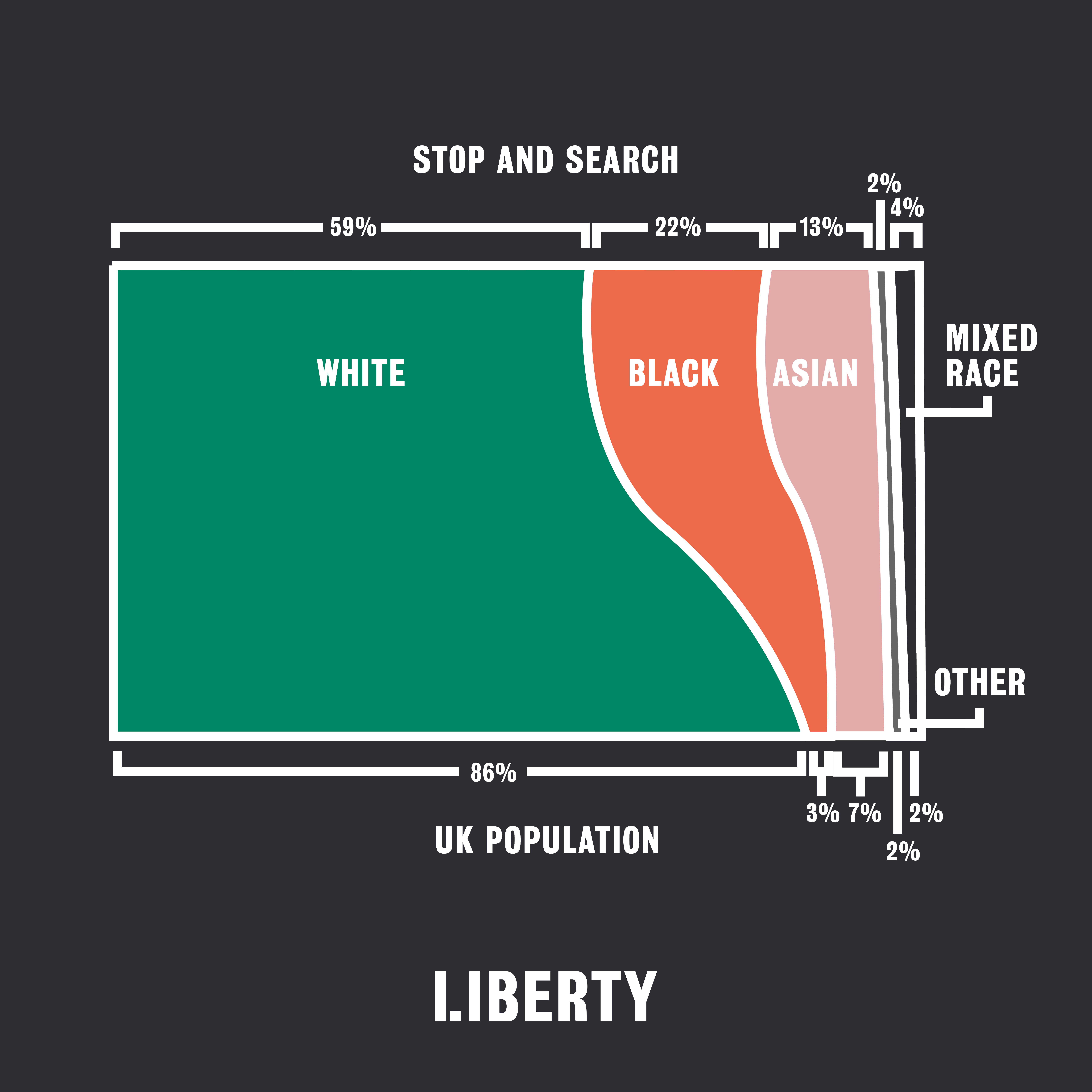

Black people make up only 3% of the UK population, but 22% of stop and searches
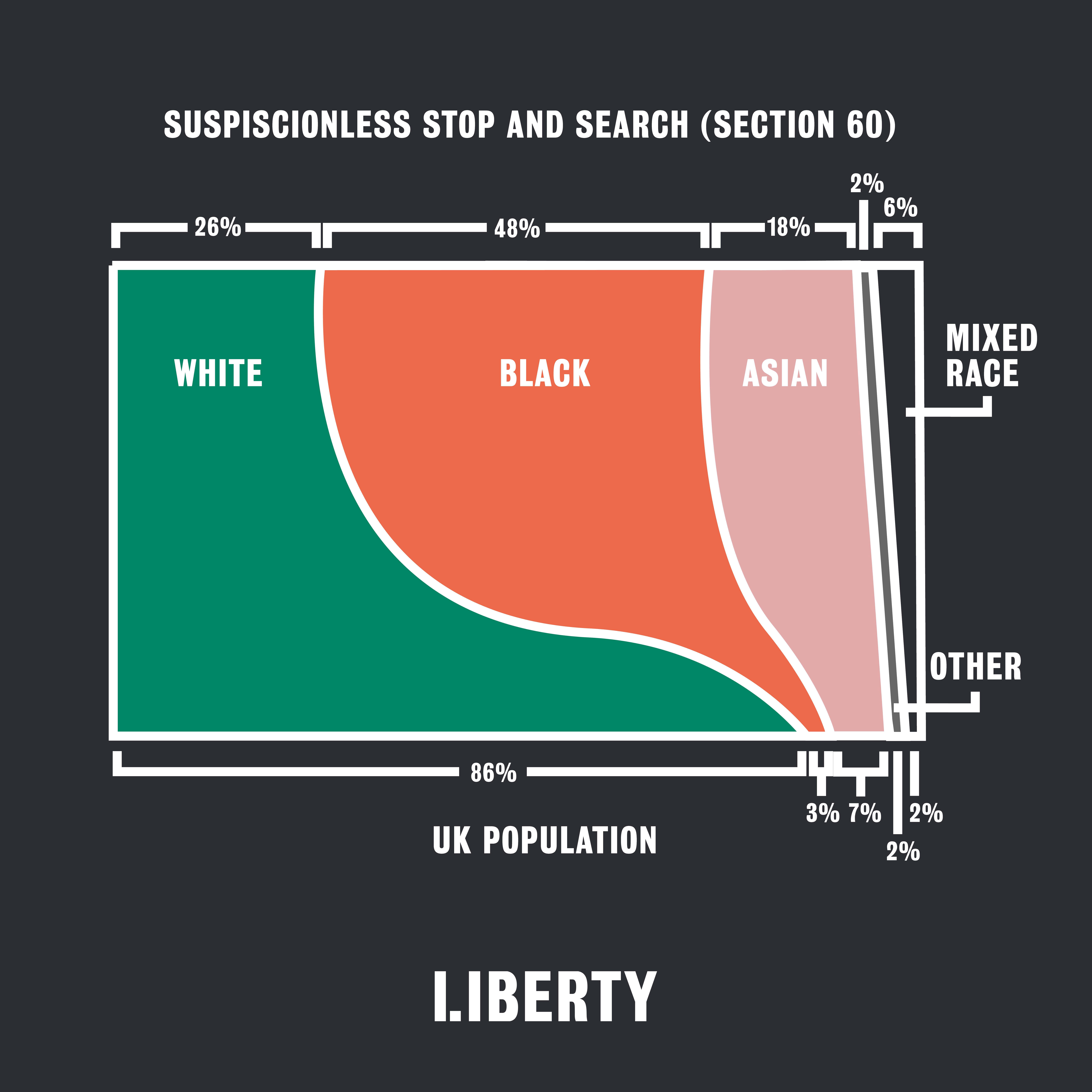

Disproportionality becomes far worse still when need for suspicion is removed by a Section 60 order.
These measures also fail on their own terms. Boris Johnson defends stop and search, but the Government’s Serious Violence Strategy states that there is no evidence that it reduces serious violence, and some studies argue that an officer carrying a Taser can increase the chances of violence. Last year, the Government rolled back restrictions, ignoring official assessments of impact this was likely to have on marginalised communities.
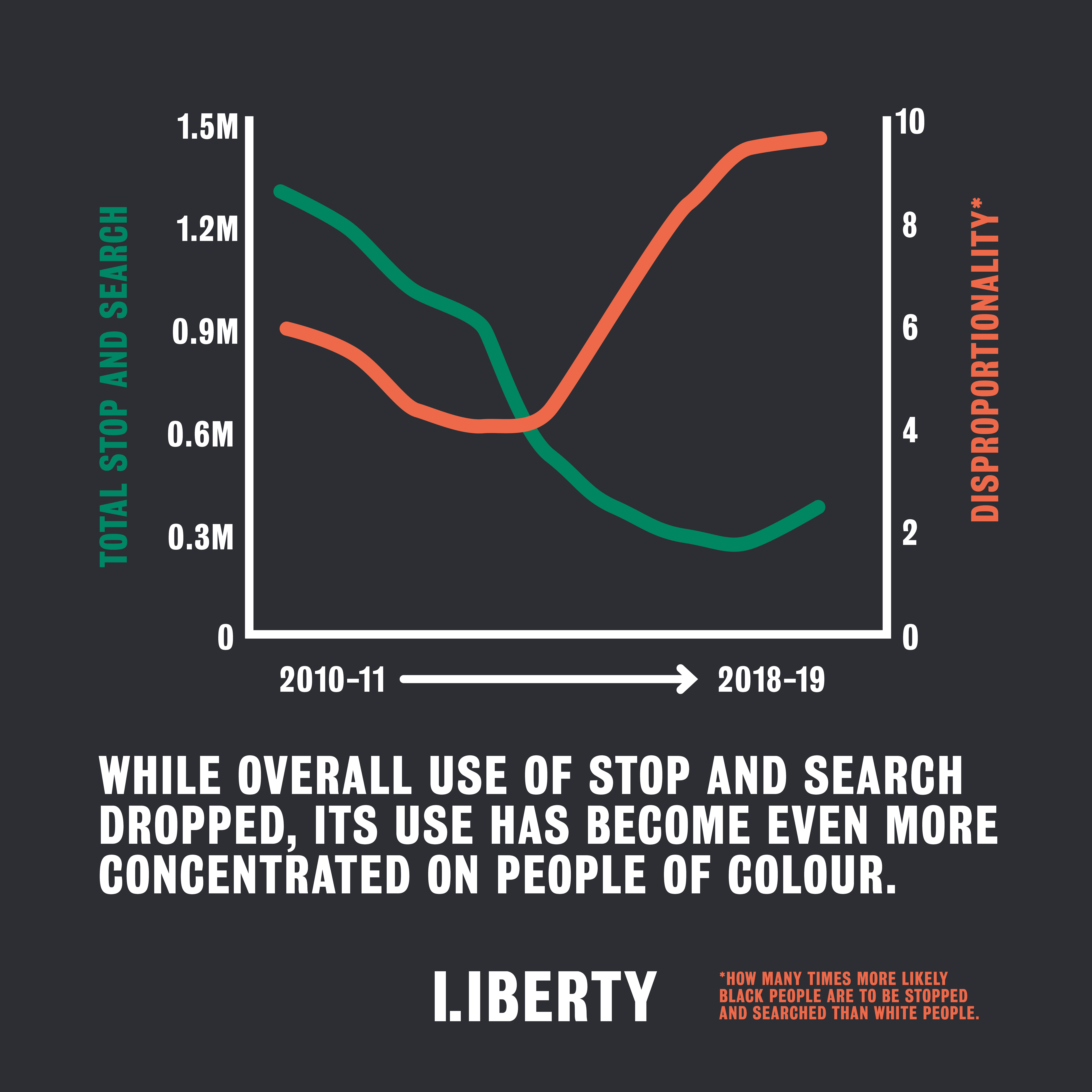

Last year, the Government rolled back restrictions, ignoring official assessments of impact this was likely to have on marginalised communities.
Policing of lockdown
Use of the expansive powers granted to police to enforce the coronavirus lockdown followed these discriminatory patterns against people of colour.
Analysis by Liberty Investigates found that nationally people of colour were over 50 per cent more likely than white people to be handed a fine for breaching the lockdown.
Some forces were nearly seven times more likely to fine people of colour than white people.
While we stayed indoors and crime levels had already fallen, some forces ratcheted up other powers.
In London, levels of stop and search rose to their highest in over seven years. The Metropolitan Police issued 65 Section 60 orders (allowing police to use stop and search without a reason for suspicion) in May alone. They stopped and searched 1,418 people under Section 60 – more than double the number of people stopped in May 2019 and far higher than any other month this year.
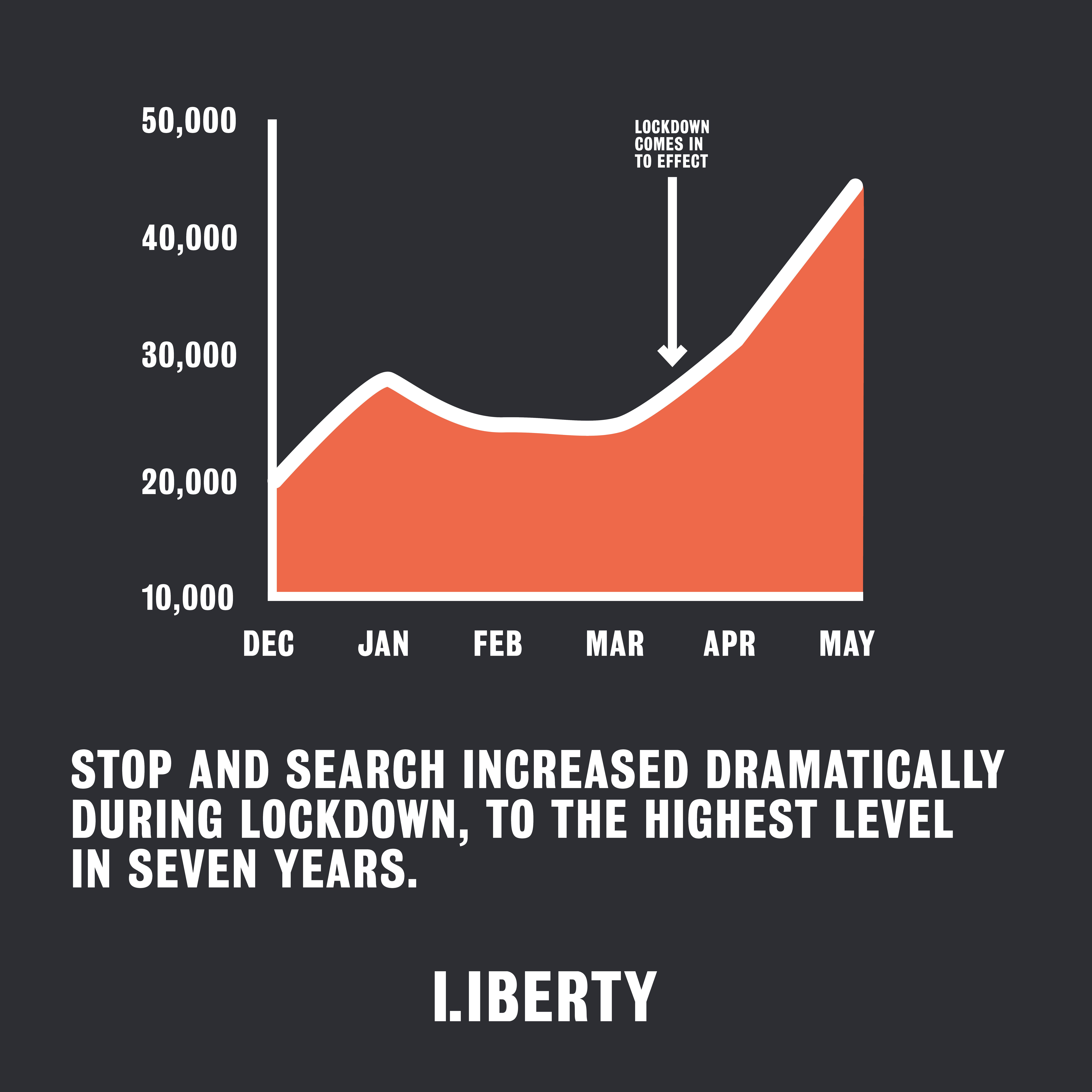

Section 60 orders were issued 65 times in May alone, far higher than previous years.
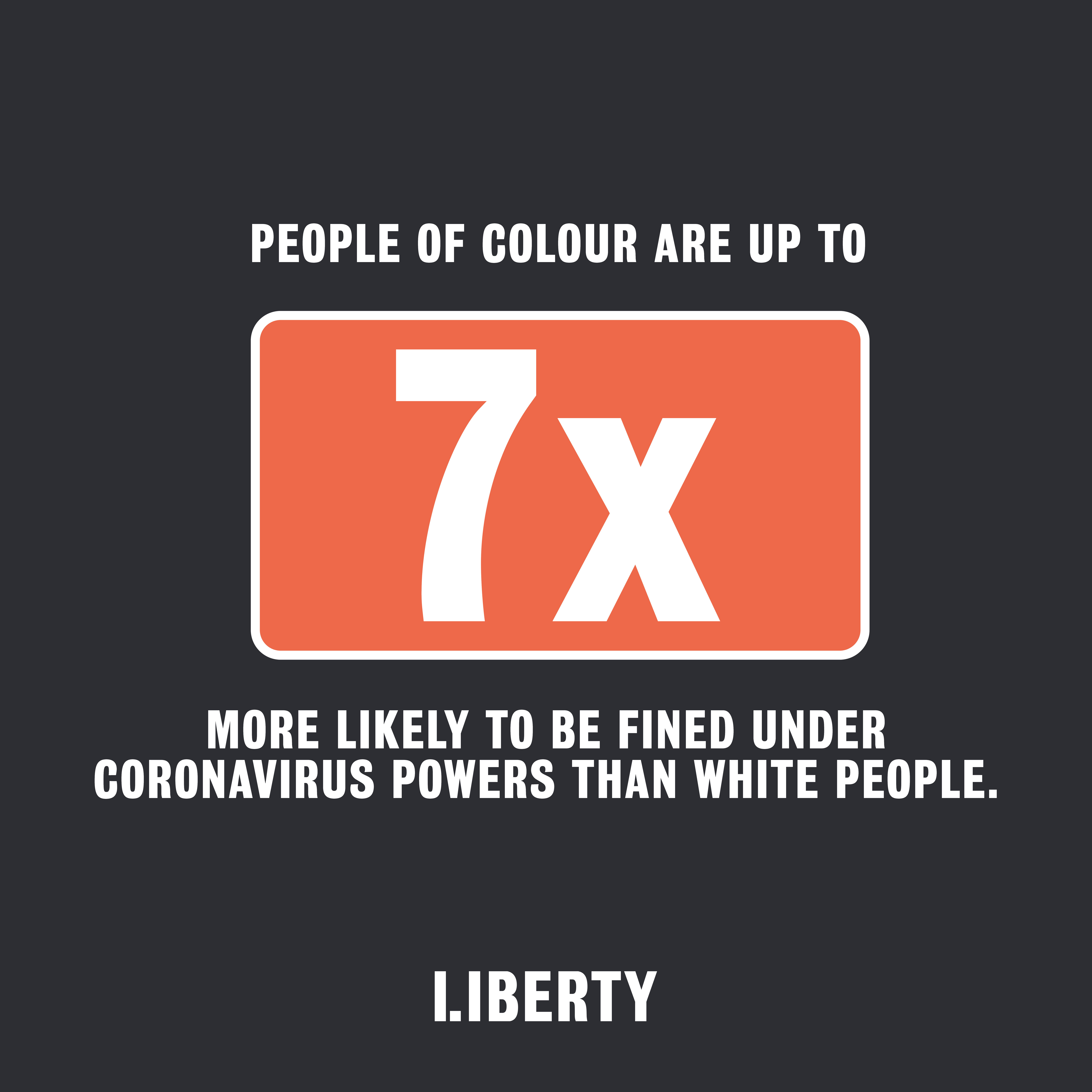

According to the Crown Prosecution Service, every charge using the Coronavirus Act has been wrong.
Magnifying pre-existing inequalities
But coronavirus did not create new problems as much as expose pre-existing inequalities. The discrimination exhibited in the use of police powers under lockdown follows the patterns being not just ignored, but reinforced within everyday UK policing.
New tools from facial recognition to predictive policing algorithms to the “Gangs Matrix” are similarly skewed against people of colour, especially young black men. The “Gangs Matrix” and Knife Crime Prevention Orders place restrictions on young people of colour, who may not have committed any crime.
These measures collectively make it harder for black people to live freely in British society without being criminalised. They ruin lives and undermine communities’ ability to cultivate a sense of identity, security and belonging.
As long as we ignore discrimination and continue to hand the police new tools, this will only get worse. It’s time for police leaders to face up to the racism affecting UK policing, and for the Government to tackle discrimination and create a public health response to coronavirus that treats us all with dignity and respect.
I'm looking for advice on this
Did you know Liberty offers free human rights legal advice?
What are my rights on this?
Find out more about your rights and how the Human Rights Act protects them
Did you find this content useful?
Help us make our content even better by letting us know whether you found this page useful or not
